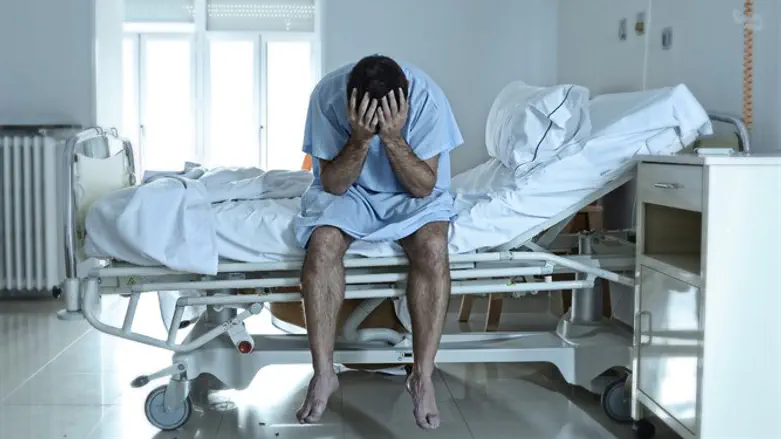
A new Health Ministry report showed that only 66% of one-year-olds received the measles, mumps, and rubella vaccinate, Israel Hayom reported. The number falls short of the goal, which is currently 75%.
In addition, only 41% of babies were brought to the Tipat Chalav "Mother and Child" clinic within two weeks of birth, while the goal is that 75% should be brought. At the two-week appointment, babies are weighed and examined to identify any possible problems, and parents receive instruction.
The Tipat Chalav clinics run by the Health Ministry and the Maccabi and Clalit health funds scored better than those under direction of the Leumit health fund and the Jerusalem and Tel Aviv municipalities.
In general care for children under six was the worst quality of all types of care.
The report also included quality of care provided by various general, geriatric, and psychiatric hospitals, as well as ambulance companies.
The report also examined wait times in the emergency rooms of medium and large hospitals, finding that Laniado had the shortest wait time, at just four minutes. Tzfat's Ziv Medical Center and Jerusalem's Shaare Zedek Medical Center each took five minutes until triage examinations, while Assaf Harofeh and Carmel took nine minutes each. The slowest hospitals were Hadassah Ein Kerem, with fifteen-minutes wait time, and Hadassah Har Hatzofim with 14 minutes wait time. Tel Aviv's Ichilov hospital and Kfar Saba's Meir each had 13-minute wait times. Sheba did not submit its statistics.
In most hospitals, 90% of patients requiring cardiac catheterization underwent the procedure within 90 minutes, but in Ashkelon's Barzilai, only 80% were treated within 90 minutes, while in Ziv the numbers were 87% and in Hadera's Hillel Yaffeh it reached 88%.
Only half of patients underwent imaging tests within 29 minutes, but that represents an improvement from 2015's 55-minute wait time and 2017's 33-minute wait time. Patients under age 54 waited an average of 34 minutes. The recommendation is to perform the tests within 25 minutes, Israel Hayom added. The hospitals with the shortest wait time were Tzfat (20 minutes) and Nahariya (21 minutes). The longest wait times were at Meir (40 minutes), Wolfson (41 minutes), Haemek (41 minutes), Assaf Harofeh (43 minutes), and Eilat's Yoseftal (48 minutes).
Just 85% of patients who have undergone surgery on the large intestine received antibiotic treatment to prevent infection, but only 50% of patients at Ziv received the preventive treatment, and at the Galilee Hospital, only 60% received it. The goal is 90%.
Deputy Health Minister Yakov LItzman (UTJ) said in a statement: "I am happy that the system continues to improve and even made records this year. We will continue to act on our obligation to provide the health system with the necessary resources to continue forward for the sake of Israel's citizens."
Walla! quoted Professor Yaron Niv, who serves as the Health Ministry's Deputy Director-General for Quality and Safety, who said: "Now is the time to thank the medical staff, quality and safety supervisors, the management of medical institutions, and the Health Ministry management for their work for the good of the patients and the entire population."